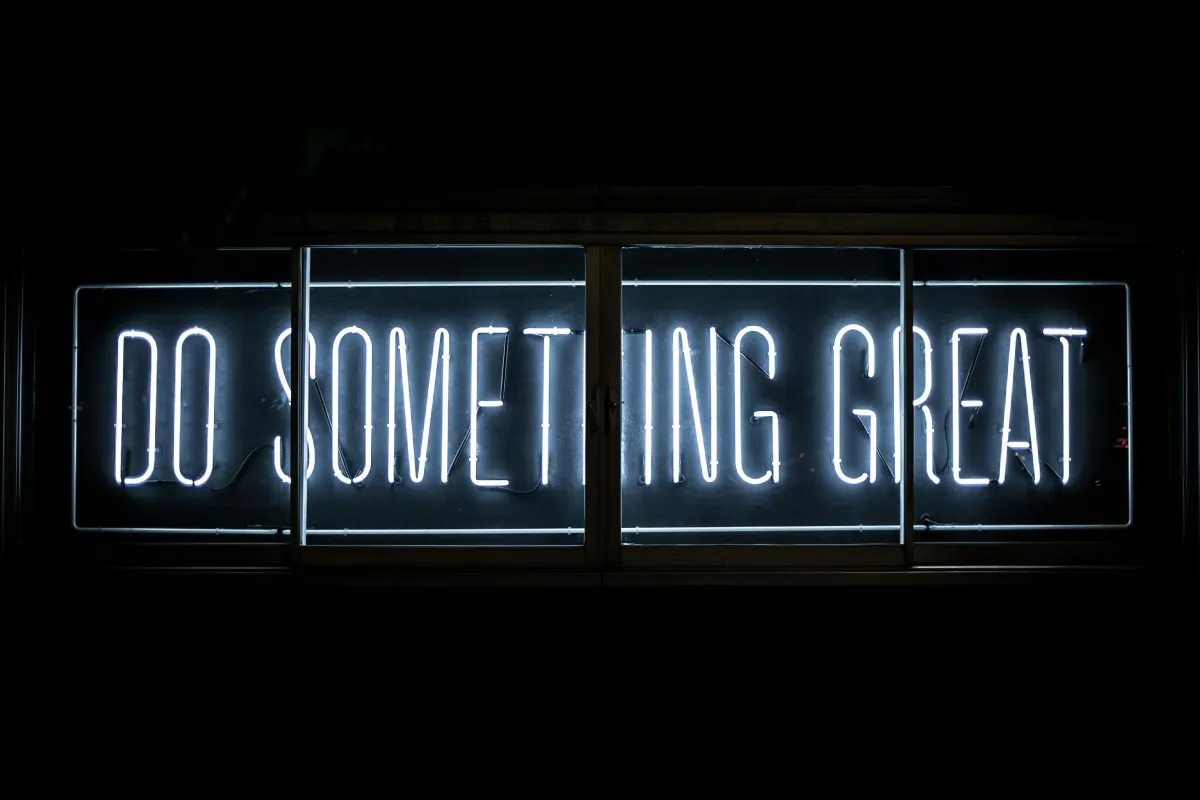619-853-6319

Do you get stuck?
Why is it that committing to goals and getting into the habit of doing the successful habits to achieve those goals is so illusive for so many people?
Question for you: What was the last goal you achieved?
If you are having a tough time remembering, you are not alone! Roughly 92% of Americans that set new year’s resolutions fail to achieve them.
In a recent study of human behavior, when college students in an art class creating ceramic pieces were divided into 2 groups, one group (the quantity group) was told they would be graded solely on the amount of work they produced, and the other group (the quality group) was told they would be graded solely on the excellence of their work, the results might surprise you.
Results- the quantity group produced a lot more ceramics, they were busy experimenting with different ideas, testing out various methods and learning from their mistakes. In that process they created hundreds of pieces and they honed their skills in the process.
The quality group sat around and speculated about what to do, they wanted to make sure they were doing it right, engaged in some perfectionism tendencies, and in the end, had little to show for their efforts other than unverified theories and one mediocre ceramics piece.
Who produced the best work- the Quantity group. It is easy to get bogged down trying to:
· find the best way to create a beautiful piece of art
· learn how to eat right
· find the best workout to lose weight
· improve stats on the field/ playing court/ ice
· find the best way to motivate your team
Many times, we are so focused on trying to find the best way, that we never actually take action or we procrastinate way too long to get started.
Instead, it is beneficial to get started and take ACTION, and engage in behaviors that will produce an outcome. We procrastinate for many reasons, however, a big one that we hear a lot in coaching conversations is, “What if I fail or it is not good enough?” Our advice is that many of us are masters at avoiding criticism, no one likes to fail publicly. If we continue to make excuses as to why we are delaying action toward a goal, at the root of that is fear of failure and criticism from self/others. (Adopted from story Atomic Habits)
Once you decide to master a habit, the key is to start with repetition, not perfection. You don’t need to plan for every eventuality as you try a new habit, however, you do need to get your reps in because there is learning in the DOING, not just the planning.
Creating habits is the process by which the behavior becomes more automatic through repetition. Next time we will explore how the brain changes to become more efficient at your chosen activity.
I’ll leave you with a few key questions- What habits are you intentionally and unintentionally building right now and what will their long term effects be on your health, happiness and success?
Testimonials
"I started working with Shannon because I was having trouble focusing and managing my nerves. In just 6 weeks I learned so much. I have already noticed a big improvement in my ability to stay focused and calm under pressure. As I use the skills Shannon taught me, I expect my mental toughness muscles to keep growing stronger. Best of all, Shannon truly cares about her clients. I felt her sincere desire to help me become the best version of myself. I am so grateful to her!"
Kristina - Singles Figure skater
"One of the most powerful things that I took away from my coaching with Shannon was the use of Imagery, how I can use it to prepare for challenging situations. When I practice with Imagery ahead of time, I realize that I have been there before and I’ve planned for this situation. As a result, I feel more in control and confident of my abilities. I now use Imagery to
prepare for challenging situations as a way to regulate my emotions and get me in a good mindset, it’s great to feel prepared.
The other thing that has really helped was being aware of my activation level. Before, I won’t lie, I was unaware of it, and now that I know where I want to be (excitement level as I start a game), I feel better, like I am in more control of how I am showing up. "
Ava - High School Softball player
"I used to get really frustrated with myself on bad skating days, especially when I came into the rink already upset or sad. I would often leave more frustrated than when I came in. Coach Shannon taught us about our emotional tank and how our state of mind can impact our performance, which has made a huge impact on my improvement. When I became aware of my emotional tank, I was able to adjust my expectations and what I was practicing that day, which allowed me to make progress on the harder days. In general, it helped me have a better attitude toward skating and enjoy it much more. Now, I’ve applied this to different aspects of my life, including school and it has really helped! "
Trinity - Synchronized and Singles Figure skater
"My daughter did your workshop and it helped her to win so many competitions. She practices her Mental Toughness exercises daily. Thank you very much for helping Matilda to become an amazing Ice Skater!"
Parent
Sign-up for our monthly newsletter
619-853-6319
Copyright © 2023 Mentally Tough Edge - All Rights Reserved.

